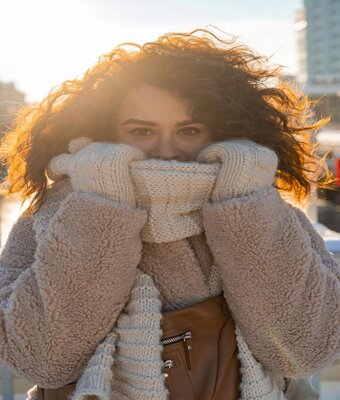
Addressing Sun Damage Concerns During Winter
Let’s be honest—when most people think about sun damage, they picture a beach holiday, not a frosty winter morning in London. But here’s something many don’t realise: the sun can still damage your skin even in winter, and even when it’s cloudy. I see it all the time in clinic.
While UVB rays (the ones that cause sunburn) aren’t as strong in colder months, UVA rays are still very much around—and those are the ones responsible for premature ageing and increasing your risk of skin cancer over time. They penetrate clouds, windows, and even glass office buildings. So just because you’re not getting burned doesn’t mean your skin is in the clear.
At our clinic, we often treat patients with skin concerns that have been quietly building up over the years—sun spots, fine lines, uneven tone, or more serious concerns like precancerous changes. Many are surprised to learn that winter exposure plays a role, too, especially for people with fair or sensitive skin, or anyone who spends a lot of time outdoors.
How to Protect Your Skin in Cold Weather
The good news? You don’t need to overhaul your routine. A few small adjustments go a long way.
Here’s what I recommend to most of my patients during the winter months:
Keep using sunscreen daily—yes, even if it’s cloudy. A moisturiser with SPF 15 or 30 is often enough if you’re mostly indoors, but if you’re out walking, commuting, or spending time outside, stick to broad-spectrum SPF 30.
Wear protective clothing when it’s practical: scarves, hats, and high collars all help shield your skin.
Don’t forget your ears and lips—they’re easy to miss but prone to damage. A simple lip balm with SPF can make a big difference.
Stay consistent—sun protection works best when it’s part of your daily routine, not just something you throw on during holidays.
And speaking of holidays…
Travelling This Winter? Here’s What to Know
Winter travel can bring some unexpected sun exposure—especially if you’re heading to:
The Southern Hemisphere (where it’s actually summer)
Tropical climates, even if it’s technically “off-season”
Ski resorts or mountain areas
Most people don’t realise that snow reflects UV rays, making you more exposed, not less. And the higher the altitude, the stronger the UV radiation. So if you’re skiing, hiking, or even just walking around a snowy town—don’t leave your sunscreen at home. A lightweight SPF 30 face cream and good sunglasses with UV protection should definitely make your packing list.
Long-Term Benefits: It’s Not Just About Preventing Sunburn
Here’s what I often tell patients: sun protection isn’t just about avoiding burns—it’s about preserving the health and appearance of your skin over time.
Daily protection helps with:
Preventing sun spots and pigmentation
Minimising fine lines and texture changes
Reducing your risk of skin cancer
Keeping your complexion looking even and vibrant, year-round
Think of it this way: just like brushing your teeth protects against cavities, dermatologists in London often remind patients that applying SPF protects your skin from slow, invisible damage. It’s a habit that pays off years down the line.
FAQ
Can I use the same sunscreen in winter as I do in summer?
In winter, you can usually opt for a sunscreen with a lower SPF due to milder sunlight, but daily protection is still essential.
Is it necessary to wear sunglasses in winter for sun protection?
Yes, sunglasses are important, especially in snowy or high-altitude areas, as they help shield your eyes and delicate eye skin from UV rays.
Can my skin still get damaged on cloudy winter days?
Yes, UV rays penetrate clouds, so your skin can be exposed even on overcast days. Sunscreen is advisable year-round.
What are the key signs of sun damage to look out for in winter?
Look for signs like uneven skin tone, increased freckles, and dryness, which can indicate sun damage, even during the colder months.
How can I protect my lips from sun damage during winter?
To protect your lips, use lip balm with SPF, as they are vulnerable to sunburn and dryness in cold weather.
Are certain skin types more susceptible to sun damage in winter?
Yes, individuals with fair skin or a history of skin conditions should be extra cautious, as they may be more prone to sun damage, even in winter.


